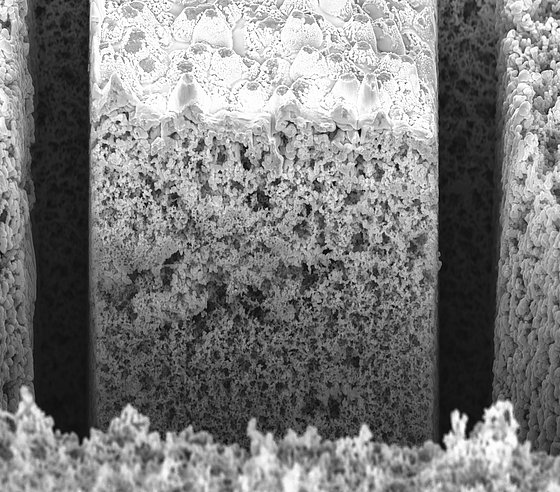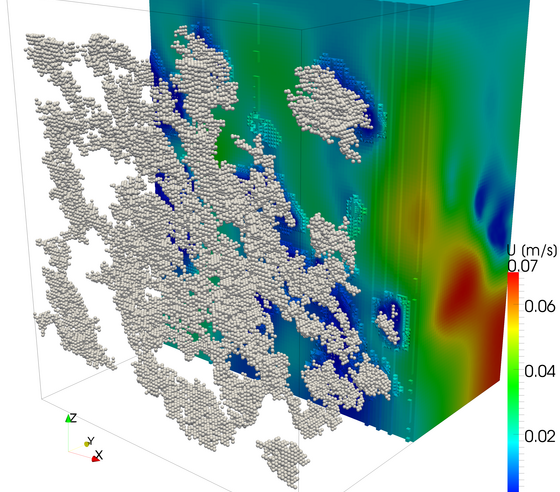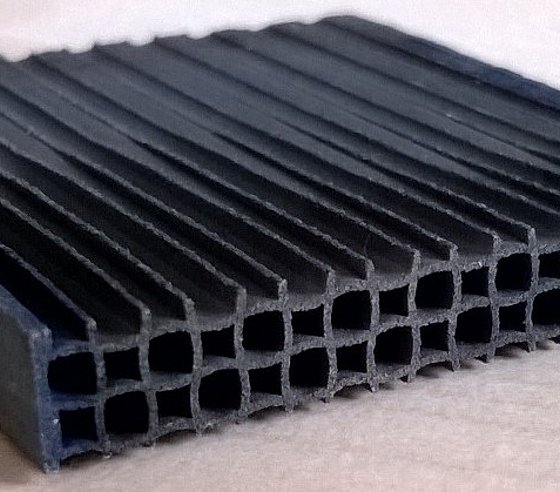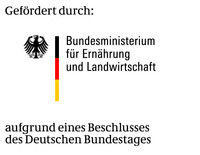Influence of soot reactivity on DPF regeneration
Bio fuels offer the potential to substitute fossil fuels such as diesel, gasoline or natural gas if used as pure fuel or additive to fossil fuels, respectively. In the last years, the usage of fuel generated from renewable sources has been pushed forward. However, the technical realization is complicated. One of the reasons is the lack of knowledge about the physicochemical properties of emissions generated from bio fuels in contrary to fossil fuels. Especially soot particles produced when burning bio fuels cause harm to the environment and human health. Consequently the soot emissions are strongly regulated by law.
Diesel particulate filters (DPF) are applied to modern exhaust gas systems in order to undercut the emission limit values for particulate mass and number. The loaded DPF has to be regenerated by burning off the trapped soot, i.e. oxidization. It is well known from literature that the reactivity of the soot is very dependent on the physicochemical properties of the emitted particles. These properties change with both engine operating parameters as well as the degree of admixture of bio fuel (biogenic fraction).
The context of the project Influence of soot reactivity on DPF regeneration is the exploration of the soot reactivity and structure. It is carried out in cooperation of four research sites:
· Institut für Wasserchemie und Chemische Balneologie (IWC), Technische Universität München;
· Institut für Technische Thermodynamik und Transportprozesse, Bayreuth Engine reserach Center (LTTT/BERC), Universität Bayreuth;
· Institut für Chemische Verfahrenstechnik (ICVT), Universität Stuttgart;
· Fachgebiet für Strömungsmechanik (LSM), Bergische Universität Wuppertal;

SEM-Image of Focussed-Ion-Beam-cut through particulate filter cake

Simulation of fluid flow through soot structure

Silicon-Carbide DPF segment
The task of the LSM according to the project is the numerical simulation of exhaust gas flow in the soot structure of disposed particles in the DPF. The work for this thesis focuses on the development of a numerical model for transient simulations of diffusive, multi-component gas flows in microporous soot layers. Volumetrically discretized particles agglomerated to a micro porous medium represent these soot layers for detailed analysis on a micro scale. Focused Ion Beam technique (FIB) is used to obtain slices of the real structure of soot loaded filter samples in order to compare them to the numerically composed soot structure. Furthermore a model of soot burn-off is implemented on the basis of experimentally developed soot reaction kinetics, which were developed at the ICVT.
A new fluid solver based on the weakly incompressible Navier-Stokes-Equations in combination with a multi-Euler-Euler-ansatz will be developed to simulate the multicomponent transport of gas mixtures in the soot layer.
The exchange of momentum between the gas components is calculated using the gas kinetic theory of Maxwell-Stefan-Diffusion. A validation of the new solver will be done by reference to results well known from literature.
Beyond that a comprehensive calculation tool will be developed. This tools will model the soot structure as microporous bulk of nonspherical particles and allows for direct numerical simulations of multicomponent gas flows in the soot layer: On the one hand the particle movement has to be coupled to the flow field. Thus the velocity field influences the particles' trajectory. On the other hand the presence and motion of particles has to take effect on the momentum balance of the flow field to account for the pressuredrop caused by the soot layer. In order to simulate the agglomeration and deposition of soot particles the calculation of potential forces (e.g. Van-der-Waals ) and contact forces between particles as well as between particles and walls will be implemented.

The research project was funded by the German Ministry of Food, Agriculture and Consume Protection (BMELV) through its Agency for Renewable Resources (Fachagentur Nachwachsende Rohstoffe e.V. – FNR) and by the Research Association for Combustion Engines e.V. (Forschungsvereinigung Verbrennungskraftmaschinen e. V. – FVV) under the grant number FKZ:22013712.
